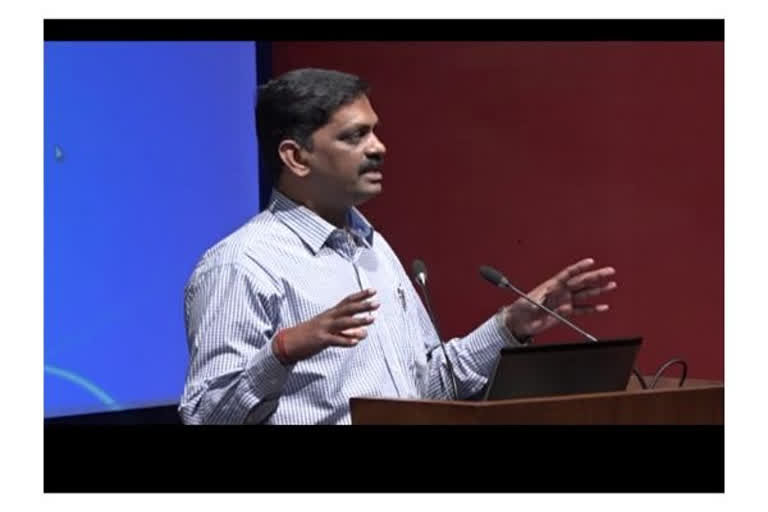New Delhi: Regional Comprehensive Economic Partnership (RCEP), its 15 member countries have recently urged India to come back to the negotiating table and have offered New Delhi the option of deferring commitments reacted to opening up its market. This means India would not have to make any commitment on this crucial issue at the time of signing the agreement. The proposal was made to India in April after the trade negotiators of the 15 countries met virtually.
Ever since, there has been a lot of apprehensions and discussions by economists and experts as to whether India must join RCEP or not as it opted out of talks in November 2019, due to concerns including the level of the market opening being demanded by the members, especially by China.
In an exclusive interview with ETV Bharat, Dr N.R. Bhanumurthy renowned macroeconomist and a Professor at the National Institute of Public Finance and Policy said, "India is not ready for RCEP, no doubt that trade improves welfare but the trade should happen at the equal terms. In RCEP, we know who is going to play a major role. In the view of the big trade agreements signed earlier with RCEP countries, India was always in the receiving ends".
"RCEP certainly is a good vehicle for improving the trade but India may not be in a position to take advantage of it, we need to set out our own house right before we go to the table and talk in equal terms. In my view, India is still not ready for the RCEP," Dr Bhanumurthy added.
Further, Dr Bhanumurthy said, "India has been attracting more investments compared to any other countries in the Asia Pacific. The country wants to grow and have trade ties but in its own terms and conditions. Given the kind of economy, India wants to create more employment opportunities, the country would like to import more, which will help us in improving our productivity and competitiveness. Trade should be in equal terms; Indian negotiators should be working on building a strong database rather than hastily entering into any agreement. Small mistake while negotiating, can have a huge implication on many other sectors of the country."
He underlined, "For instance, if Korea is a part of RCEP, they know what are the commodities that have comparative advantages and about the comparative advantages of commodities in other countries. They are aware that by getting into the deal, how much net welfare gain they will derive from it. Korea has a much better database of production, import and export. On the other hand, in India, we don't have data for many of the commodities, so on what basis India would be participating in the trade negotiations?"
ALSO READ: India added 21 million jobs in May despite high unemployment rate
"Commodity level information is a must, unfortunately, India and many other countries in the Asia Pacific region depends on the GTAP model. Under that, I would reveal that there is a lot of information about Indian products which are not Indian database but a database of some other countries. India is not in a position to get into serious negotiation with RCEP nations especially when India is planning to ban Chinese products and heading towards becoming self-reliant", he further added.
"Unfortunately, India lacks a micro-level database and lacks quality research to negotiate with RCEP nations on most of the commodities. For all the member nations, Indian markets would be a conducive market which goes against the self-reliant economy. We could only see that commodities are dumped in India. I don't think India has made a mistake by not signing RCEP especially when the nation's mood is to have a 'Áatmanirbhar Bharat' and it makes no sense to again go back to the drawing table to negotiate with RCEP countries, especially when big countries are dominating. All the ASEAN countries have a much better database in comparison to South Asian countries," he stated.
The current RCEP consists of members of the Association of Southeast Asian Nations, Australia, China, Japan, Korea, and New Zealand.
Meanwhile, commenting on the Comprehensive Strategic Partnership between India and Australia, economist Aakash Jindal underlined that RCEP does not suit India but bilateral deal with RCEP nations is definitely a yes for India's economic growth.
"Joining RCEP goes against India's interest because it impacts the country and again, we know there would be a surge in imports from China in RCEP, " he said.
"We are already aware of China's reputation in the global equity, similarly, there are many other countries which don't want Chinese companies to invest. So, I believe India will be much better off if it signs deal with member countries of RCEP like Australia, " he said.
Highlighting on China's role in One belt One Road project, he said, "China has been lending money at exorbitant rates to countries like Pakistan and once they are unable to pay, China has taken custody of some of the lands and ports in some countries. Even in CPEC (China Pakistan Economic Corridor) project, the borrowing rate that Pakistan would be paying is 7-8% which imputes labour and exchange rates, which is again a high rate of interest charged by China."
"In my opinion, India must stay away from RCEP but must engage in independent bilateral deals with member nations. As far as FDI is concerned, India has a great candidature for Foreign Direct Investment (FDI) as there would be lesser countries who would be now investing in China. India is the only one, which can compete with China in terms of manufacturing as we have strong labour and workforce. In the future, European nations, Australia, and even countries like Korea, Japan would be involved in FDI with India," he pointed out.
It is worth noting that, many global partners continue to seek ways to bring India into the RCEP group, arguing that it will have a key role as the COVID-19 pandemic has disrupted the global economy.



